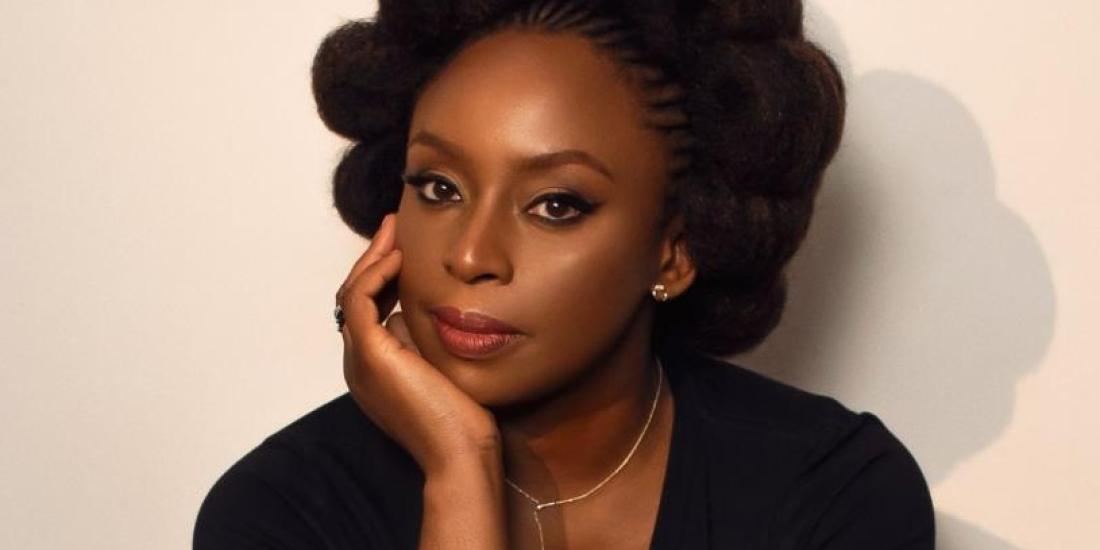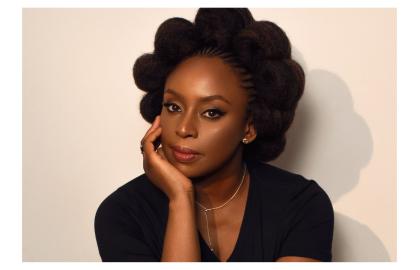‘The problem with stereotypes is not that they are false, but that they are incomplete,’ said Adichie in her now-celebrated 2009 TED Talk, The Danger of a Single Story. Simplified narratives deny human experience. This principle runs through all her work, from Purple Hibiscus to Americanah, and up to her most recent novel, Dream Count. Born in 1977 in Nigeria to an Igbo family of six children, she grew up in a university town before moving to the United States at the age of 19 to pursue a degree in creative writing. This transition between worlds became a recurring theme in her writing. She came to embody a kind of success story, receiving the MacArthur Fellowship – known as the “genius grant” – in 2008. With self-confidence, she dismantles the clichés surrounding Africa and Black women. She has become a figure with whom many can identify in a world that often marginalises numerous Africans. In 2013, Beyoncé cited her in Flawless.Adichie became a pop icon; her words were studied in classrooms, and her ideas resonated far beyond the literary field. That success also drew criticism: some accused her of promoting a softened feminism. She responded without hesitation, defending the right to nuance in her open letter It is Obscene. And this is perhaps the red thread in her thought: a vindication of complexity. In an essay on mourning, Adichie wrote that her father taught her to say “I don’t know” — a rare sign of humility in a world that favours viral certainty.
Writing in Many Voices
Chimamanda Ngozi Adichie consistently challenges stereotypes to dismantle them. In Purple Hibiscus, the patriarch embodies the single story, which tramples other family truths. In Half of a Yellow Sun, the Biafran War is narrated through several voices — activist, rural, colonial — skillfully woven together to bring a silenced tragedy to the fore. In Americanah, Ifemelu discovers that being Black holds different meanings in Nigeria compared to the United States. Exile is depicted in all its complexity. In her interviews, Adichie emphasises the significance of stories rooted in personal experience. She believes that it is through the specific and grounded that something universal may take shape. In Dream Count, four women share their doubts, moments of joy, and silences. Written after she became a mother and lost her father, the novel signifies a turning point for Adichie: “My writing is different,” she says, fully aware of the contradiction she carries. The book speaks of friendship, of buried dreams, and of a future that can still be imagined. When a society ceases to dream, it begins to wither. For Adichie, writing serves as a means of creating spaces where multiple voices can coexist. Writing is a reminder that the world can only be understood by embracing the full range of its narratives. If each person is a story, then humanity is a library — and no single book can contain it all.


